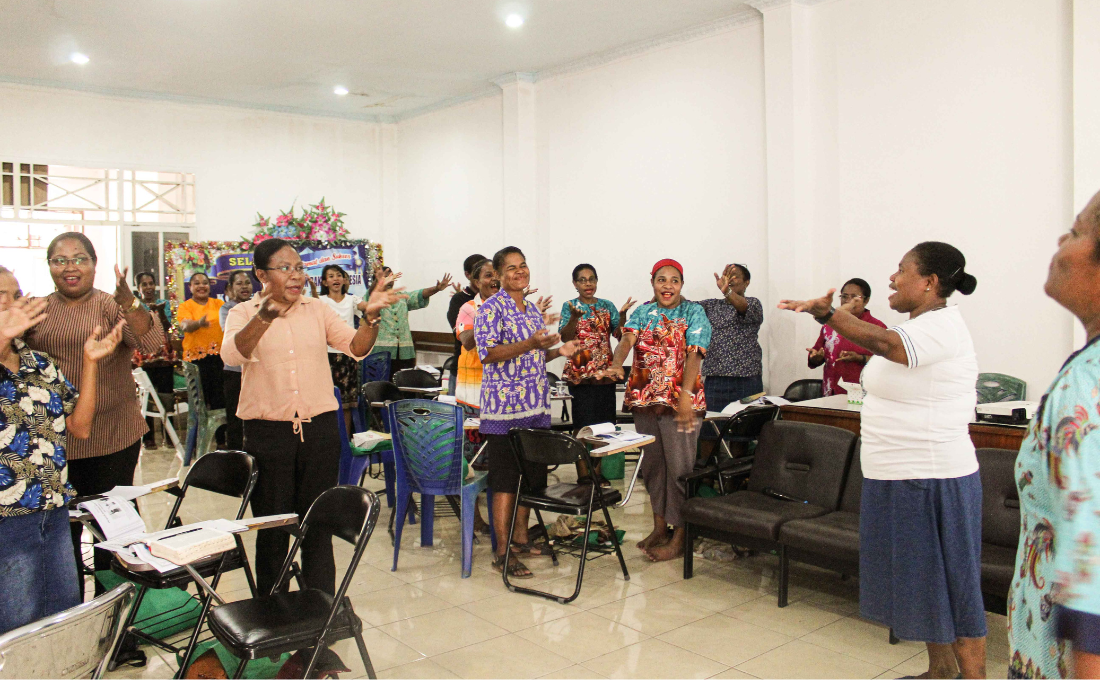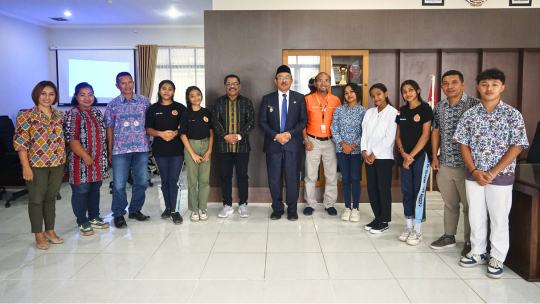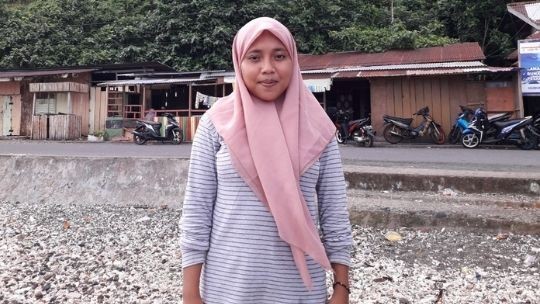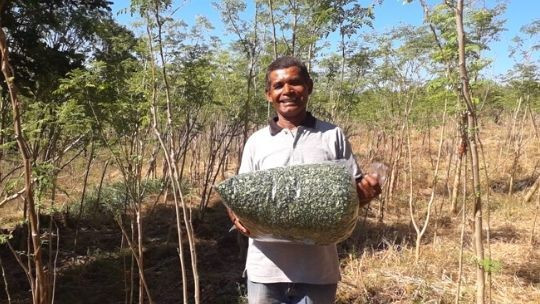Home, Gender, and Fellowship: A One-day Seminar that Transforms Women as Agents of Harmony

Violent conflict events always cause casualties. Women and children who feel unsafe, unable to study, and do their usual activities. However, women themselves are empowered agents to prevent violent conflict. The NOKEN (TraNsformasi kOmunitas untuk KErukunaN) Papua program as a form of cooperation between Wahana Visi Indonesia (WVI) and church partners seeks to increase the capacity of women as community empowerment agents to build harmony. On April 1, 2023 in Sentani, Jayapura Regency, women's capacity building for the first time involved local facilitators. The training was led by Papuan religious leaders and women. The materials they delivered left a meaningful impression and impact on the other women who participated.
The sky from Saturday morning to noon, April 1, 2023, was shrouded in gray clouds. In contrast, a church in Sentani was filled with bright smiles and laughter of women from various congregations from the lake to the highlands. They were busy interacting with new friends and facilitators. The rain did not prevent the room from filling up. Amidst a pile of roles and responsibilities, the women volunteered to spend their weekend attending a one-day seminar on building harmony. The heavy material was made light by the local facilitators who delivered it fluently in everyday language.
Bapa Elimelek, Mama Alva, and Mama Serlitha are part of a team of local facilitators who have been trained in the Training of Trainers (ToT) of the Building Harmony Module, who also took the initiative to organize this activity. When asked about their experience in preparing and facilitating the event, the facilitators answered with sparkling eyes.
Bapa Eli praised his fellow facilitators who gave the material spontaneously and flexibly, not fixated but still in line with the module. He assessed that the team of facilitators worked with their hearts so that they were cohesive.
"They understand me as a parent so I am not ashamed to ask and learn from them. They also learn from me. We motivate each other. Friends who are lacking or one is absent, one immediately fills in. Friends are so united." said Bapa Eli.
According to Mama Alva, this is because they both feel the importance of the Building Harmony Module material since they themselves became training participants. They also have the same desire to share the material with others.
The facilitators were energized by the participants' response, which exceeded expectations. "Many wanted to ask questions, raised their hands, and were eager to perform in presentations or role plays. The women were all disciplined and from morning to evening they did not feel tired. In fact, they even asked if there were any more activities they wanted to participate," Bapa Eli said passionately.
Despite their diverse backgrounds and positions, the women were comfortable talking openly after learning that they shared the same concerns. From their stories, it turned out that many felt that the material presented was very relevant to their daily lives. These participants often encounter conflicts in their families, children's schools, and women's fellowship at church. The participants were also more familiar with the concept of gender equality:
"I saw that these women have a lot of bitterness, so during the session on how to resolve conflicts, they were more open because they felt they were in the same boat. Especially when we raised gender issues yesterday, patriarchy is still strong in Sentani. Even going to worship is sometimes prohibited, there is a lack of voting rights at home,".
Equally important, women increasingly realized their important role as agents of harmony in managing conflict. At the end of the activity, the facilitators asked the participants, "Do you want to be a reconciler, facilitator or agent of harmony?". They were impressed by the question because it made the women feel like they were truly capable of being agents of harmony. "In fact, what I see is that women are very concerned with harmony," concluded Bapa Eli with a smile.
Women realize that conflicts everywhere can be managed positively by reducing bad perceptions and increasing compassion in interacting with other people or groups. Mama Alva shared that in the women's fellowship in the congregation, the division of responsibilities is often problematic because each prioritizes personal ego. "We think that this training on community transformation for harmony, how we manage conflicts, how we see from various perspectives, I think this is very important and praise God when we bring this material, all of our friends begin to open their minds. They feel that it is true that the conflicts that occur are only because we prioritize according to our version or our point of view,".
Not only that, after the training, the facilitators also saw the impact on the participants they happened to meet. "When we usually gather, women are most synonymous with chatting. Now it has stopped because we have learned about perspectives, finally there are things that we can bring back from the material we have conveyed,".
This was confirmed by Mama Elsa, a training participant herself. "Now if the mothers get together with gossip, I just keep quiet. Because if I participate, it's the same as enlarging the problem. What we think is true is not necessarily factual or true in the eyes of others. Now I prefer to talk about good news," she said.
She even felt that this one-day seminar was a turning point in her life. Not only in the fellowship, but also in her family. Coincidentally, during the training, she was in conflict with her immediate family due to economic issues. After the training, she tried to look at the problem from a different perspective and applied compassionate communication techniques (assertive speaking - firm but gentle and respectful to the other person). She also applied the material in parenting. "Since then, our relationship as a family has become closer. Even if there is a problem, we rarely get angry or violent," she said.
Mama Serlitha believes that this training is important not only for the women's community. She repeated the content of the module material on identity, "When we see our identity as a creation that is similar and in the same image as our creator, then it will have an impact on other people and the environment in which we are. And I think it starts with ourselves, which is a very good positive thing. And our desire is that through this training, through this NOKEN program, everyone gets the same understanding through training activities like this, I think maybe it will answer every problem or conflict that exists in the congregation. Not just for women. This is very good, because if we learn from all kinds of cultural assets and values, they are all in the congregation," she said.
Writer: Andina Larasati (Program NOKEN Coordinator)



